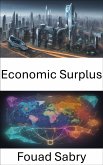What is Price Floor
A price floor is a government- or group-imposed price control or limit on how low a price can be charged for a product, good, commodity, or service. It is one type of price support; other types include supply regulation and guarantee government purchase price. A price floor must be higher than the equilibrium price in order to be effective. The equilibrium price, commonly called the "market price", is the price where economic forces such as supply and demand are balanced and in the absence of external influences the (equilibrium) values of economic variables will not change, often described as the point at which quantity demanded and quantity supplied are equal. Governments use price floors to keep certain prices from going too low.
How you will benefit
(I) Insights, and validations about the following topics:
Chapter 1: Price floor
Chapter 2: Microeconomics
Chapter 3: Minimum wage
Chapter 4: Supply and demand
Chapter 5: Deadweight loss
Chapter 6: Economic surplus
Chapter 7: Industrial policy
Chapter 8: Price discrimination
Chapter 9: Elasticity (economics)
Chapter 10: Pigouvian tax
Chapter 11: Market clearing
Chapter 12: Price controls
Chapter 13: Price ceiling
Chapter 14: Government failure
Chapter 15: Price support
Chapter 16: Tax incidence
Chapter 17: Market distortion
Chapter 18: Profit (economics)
Chapter 19: Labour economics
Chapter 20: Excess supply
Chapter 21: Infrastructure-based development
(II) Answering the public top questions about price floor.
(III) Real world examples for the usage of price floor in many fields.
Who this book is for
Professionals, undergraduate and graduate students, enthusiasts, hobbyists, and those who want to go beyond basic knowledge or information for any kind of Price Floor.
A price floor is a government- or group-imposed price control or limit on how low a price can be charged for a product, good, commodity, or service. It is one type of price support; other types include supply regulation and guarantee government purchase price. A price floor must be higher than the equilibrium price in order to be effective. The equilibrium price, commonly called the "market price", is the price where economic forces such as supply and demand are balanced and in the absence of external influences the (equilibrium) values of economic variables will not change, often described as the point at which quantity demanded and quantity supplied are equal. Governments use price floors to keep certain prices from going too low.
How you will benefit
(I) Insights, and validations about the following topics:
Chapter 1: Price floor
Chapter 2: Microeconomics
Chapter 3: Minimum wage
Chapter 4: Supply and demand
Chapter 5: Deadweight loss
Chapter 6: Economic surplus
Chapter 7: Industrial policy
Chapter 8: Price discrimination
Chapter 9: Elasticity (economics)
Chapter 10: Pigouvian tax
Chapter 11: Market clearing
Chapter 12: Price controls
Chapter 13: Price ceiling
Chapter 14: Government failure
Chapter 15: Price support
Chapter 16: Tax incidence
Chapter 17: Market distortion
Chapter 18: Profit (economics)
Chapter 19: Labour economics
Chapter 20: Excess supply
Chapter 21: Infrastructure-based development
(II) Answering the public top questions about price floor.
(III) Real world examples for the usage of price floor in many fields.
Who this book is for
Professionals, undergraduate and graduate students, enthusiasts, hobbyists, and those who want to go beyond basic knowledge or information for any kind of Price Floor.
Dieser Download kann aus rechtlichen Gründen nur mit Rechnungsadresse in A, B, BG, CY, CZ, D, DK, EW, E, FIN, F, GR, H, IRL, I, LT, L, LR, M, NL, PL, P, R, S, SLO, SK ausgeliefert werden.









